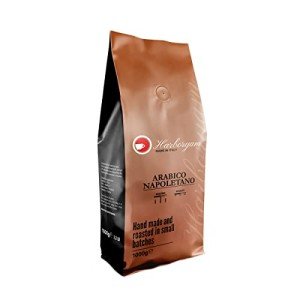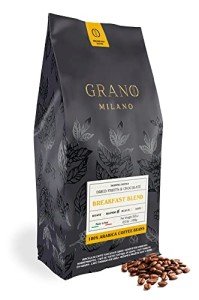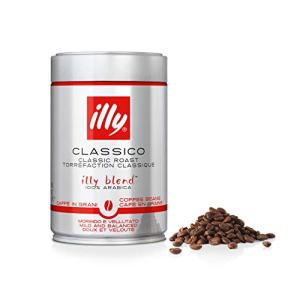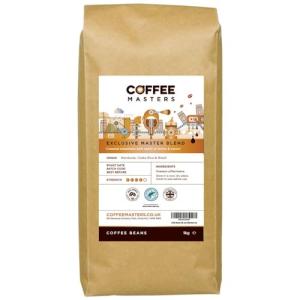Coffee, often touted as a magical elixir that kickstarts the day, has evolved from a simple beverage to a multi-billion dollar industry that emphasizes quality, ethics, and sustainability. Among the myriad of choices available, Coffee Masters Organic Fairtrade Arabica Beans stand out as a premium option for coffee aficionados. This guide delves into the intricacies of these beans, highlighting their features, benefits, and the fundamental principles of fair trade and organic practices.
Understanding Arabica Beans
Arabica beans (Coffea arabica) are one of the two most common types of coffee beans, the other being Robusta. They are known for their superior flavor profile, smooth finish, and lower caffeine content compared to Robusta. Generally grown at high altitudes in regions with temperate climates, Arabica beans require careful cultivation and attention to detail to thrive.
Characteristics of Arabica Beans
-
Flavor Profile: Arabica beans offer a wide range of flavors, often described as sweet, soft, and flavorful with hints of fruit and sugar. They typically have a richer aroma, making them a favorite among connoisseurs.
-
Plant Traits: Arabica coffee plants are more delicate than their Robusta counterparts, requiring specific weather conditions and more manual labor for harvesting, which adds to the overall cost.
-
Acidity: Arabica beans are known for their higher acidity levels, which contributes to their bright and vibrant taste.
Coffee Masters: A Commitment to Quality
Coffee Masters is a brand that prides itself on delivering high-quality coffee products. The company’s commitment to sustainability and environmental practices is demonstrated through its dedication to sourcing organic and Fair Trade certified beans.
Organic Farming Practices
Organic coffee farming eliminates the use of synthetic pesticides, herbicides, and fertilizers. This not only enhances the health benefits of the coffee consumed but also benefits the environment by promoting biodiversity and reducing soil degradation. Some key features of organic farming include:
- Natural Fertilizers: Utilizing compost and green manure to nourish the soil.
- Crop Rotation: Rotating crops to help maintain soil fertility and avoid pest cycles.
- Permaculture: Creating sustainable and self-sufficient agricultural ecosystems.
Fair Trade Certification
Fair Trade certification ensures that farmers receive fair wages and work in safe conditions, promoting sustainable practices. This movement empowers communities by providing them with a voice and fair economic opportunities. Here are some pivotal aspects involved in compliance with Fair Trade standards:
- Fair Payment: Farmers receive a minimum price regardless of market fluctuations.
- Community Development: Funds from Fair Trade sales are often reinvested in social and environmental projects, such as education and healthcare.
- Sustainable Farming: Emphasis on environmentally friendly farming practices to promote long-term ecological balance.
The Coffee Masters Organic Fairtrade Arabica Beans: A Closer Look
The 1kg package of Coffee Masters Organic Fairtrade Arabica Beans represents both quality and responsibility. This product is ideal for coffee lovers who appreciate the nuances of flavor while adhering to ethical consumption choices.
Benefits of Coffee Masters Organic Fairtrade Arabica Beans
- Rich Flavor Profile: The organic Arabica beans offer a delightful taste experience characterized by notes of chocolate, caramel, or even florals, depending on the specific blend.
- Sustainability: By choosing Fair Trade and organic options, consumers contribute to sustainable farming practices that benefit both the environment and farming communities.
- Health Benefits: Organic coffee is subjected to fewer chemicals, making it a healthier choice for individuals concerned about their coffee’s chemical exposure.
- Social Responsibility: Purchasing these beans supports farmers and their communities, creating a positive cycle of empowerment and economic development.
How to Brew the Perfect Cup
Brewing coffee is an art and science that can elevate the enjoyment of Coffee Masters Organic Fairtrade Arabica Beans. Here’s a simple guide to brewing the perfect cup:
- Select Your Brewing Method: Popular methods include French press, pour-over, and espresso.
- Grind the Beans: For the freshest taste, grind your coffee beans just before brewing. The grind size will vary based on the brewing method—coarse for French press, medium for drip, and fine for espresso.
- Measure the Coffee: A common ratio is 1:15 of coffee to water (e.g., 15g of coffee for 225ml of water).
- Water Temperature: Use water heated to about 90-96°C (195-205°F) for optimal extraction.
- Brewing Time: Adjust the steeping time based on the brewing method used. For instance, a French press typically requires 4 minutes, while an espresso shot takes about 30 seconds.
- Enjoy: Sip and savor the rich flavors, taking note of the distinguishable notes present in the brew.
FAQs About Coffee Masters Organic Fairtrade Arabica Beans
Q: How does Fair Trade certification benefit farmers?
A: Fair Trade certification ensures farmers receive fair payment for their crops, enables community development projects, and encourages sustainable farming practices.
Q: Is organic coffee more expensive?
A: Yes, organic coffee often costs more due to higher production standards, but it supports ethical farming and environmental sustainability.
Q: Can I use coffee beans in my regular coffee machine?
A: Absolutely! You can use ground Coffee Masters Organic Fairtrade Arabica Beans in any conventional coffee brewing machine.
Q: How should I store my coffee beans?
A: Store your coffee beans in an airtight container in a cool, dark place to maintain freshness and flavor.
Q: What is the shelf life of Coffee Masters Organic Fairtrade Arabica Beans?
A: When stored properly, whole beans can retain their flavor for several months, typically up to 6-12 months past the roast date.
In conclusion, Coffee Masters Organic Fairtrade Arabica Beans exemplify the intersection of quality, flavor, and ethical responsibility. For coffee lovers keen on savoring premium coffee while supporting sustainable practices, these beans provide an exceptional choice. The flavor profile of Arabica, combined with the principles of Fair Trade and organic farming, represents a holistic approach to coffee production and consumption that benefits both the palate and the planet.






